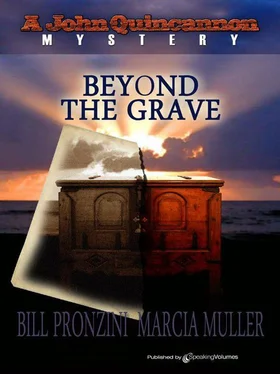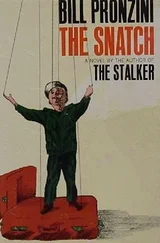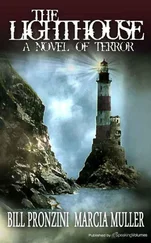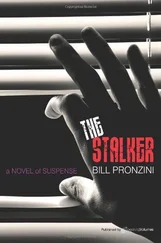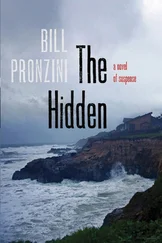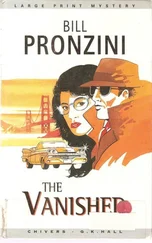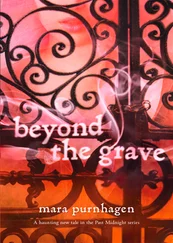Bill Pronzini - Beyond the Grave
Здесь есть возможность читать онлайн «Bill Pronzini - Beyond the Grave» весь текст электронной книги совершенно бесплатно (целиком полную версию без сокращений). В некоторых случаях можно слушать аудио, скачать через торрент в формате fb2 и присутствует краткое содержание. Год выпуска: 2011, ISBN: 2011, Издательство: Speaking volumes, Жанр: Исторический детектив, на английском языке. Описание произведения, (предисловие) а так же отзывы посетителей доступны на портале библиотеки ЛибКат.
- Название:Beyond the Grave
- Автор:
- Издательство:Speaking volumes
- Жанр:
- Год:2011
- ISBN:9781612321202
- Рейтинг книги:4 / 5. Голосов: 1
-
Избранное:Добавить в избранное
- Отзывы:
-
Ваша оценка:
- 80
- 1
- 2
- 3
- 4
- 5
Beyond the Grave: краткое содержание, описание и аннотация
Предлагаем к чтению аннотацию, описание, краткое содержание или предисловие (зависит от того, что написал сам автор книги «Beyond the Grave»). Если вы не нашли необходимую информацию о книге — напишите в комментариях, мы постараемся отыскать её.
Beyond the Grave — читать онлайн бесплатно полную книгу (весь текст) целиком
Ниже представлен текст книги, разбитый по страницам. Система сохранения места последней прочитанной страницы, позволяет с удобством читать онлайн бесплатно книгу «Beyond the Grave», без необходимости каждый раз заново искать на чём Вы остановились. Поставьте закладку, и сможете в любой момент перейти на страницу, на которой закончили чтение.
Интервал:
Закладка:
FRAY JULIO DEL PRADO
1751–1826
HOMBRE DE DIOS
Hombre de Dios . Man of God. The mendicant who had preceded Urbano as the padre of San Anselmo de las Lomas, no doubt; men of the cloth, Quincannon remembered, were sometimes interred in the floors of their churches. He wondered if Fray Del Prado had died here, too-more peaceably than Padre Urbano. But it was a vaguely depressing thought, and he didn't dwell on it.
Neither did he linger at the tombstone or inside the ravaged church. It was a different grave that interested him, one containing the mortal remains of someone named Maria. Mas alia del sepulcro . Beyond the grave. Donde Maria . Where Maria. Beyond the grave where Maria someone lies? That was the logical interpretation of the sentence fragments on the torn scrap.
He went out into the graveyard at the rear. This was the only part of the pueblo that showed signs of care and attention. Encroaching vegetation had been cleared away from the score of graves, and each one was marked by an engraved tombstone. He prowled among them, looking at the inscriptions. The largest stone towered above the final resting place of Don Esteban, and he found where Padre Urbano had been buried. He also found one inscribed with the name Maria Alcazar and the dates 1799–1827. Was this the Maria referred to in Tomas Cordova's document-this the grave beyond which the artifacts had been hidden? But if so … how far beyond it? In what direction? There was no way of knowing without the rest of the document.
Well, there were consolations. The person who had killed to get that document might not be able to decipher it without those two key phrases, mas alia del sepulcro and donde Maria . And that person hadn't been here yet in any case: the graves and the surrounding terrain showed no signs of recent trespass. No one had been here, it seemed, in weeks.
Quincannon returned to where he had left his horse, mounted, and rode back to the main road. He was chilled, tired, and ravenously hungry. He wanted nothing so much now as a warm fire, a cup of decent coffee, and any sort of hot food that did not contain meat from the carcass of a goat. Everything else could wait, including what he hoped would be an illuminating discussion with Felipe Antonio Abregon y Velasquez.
The road was deserted and remained that way for the last quarter mile of his journey: he saw no human being anywhere, not even as he climbed the oak-laden hill toward the open gates of the hacienda. The house and its immediate outbuildings were in good repair, freshly whitewashed and with new-tiled roofs; but there was an air of emptiness about them, at least from a distance, as if they, too, had been abandoned long ago. Quincannon found himself wondering if Velasquez and O'Hare had even arrived yet, or if for some reason they had been delayed and he was reaching the hacienda ahead of them.
Through the open gates he could see most of the courtyard, and it appeared to be deserted. But then, when he was almost to the entrance, two young men appeared suddenly from inside, one from behind each of the gate halves-so suddenly that they startled him, made him draw sharp rein. Both men were Mexican, or perhaps mestizo, and roughly dressed. They came in quick, agile movements, like trained soldiers, one to each side of him.
“That is far enough, senor,” the bigger of the two said. “Remain where you are. Do not move.”
Quincannon sat still, staring down at them in amazement. He had expected a cool welcome and a certain lack of hospitality at the Velasquez hacienda, but he had not expected to be greeted by a pair of grimly leveled rifles-to find himself facing what had the ominous look of a two-man firing squad.
TWO
The bigger man gestured with his rifle, a Henry that was at least as old as he was. He said, “Who are you, senor? What is your business here?”
“My name is John Quincannon. I've come to see Felipe Velasquez.”
“You are known to him?”
“Yes.”
“He expects you?”
“Yes. Is he here?”
The question went unanswered. Instead the two riflemen exchanged a few words of rapid, slurred Spanish that Quincannon couldn't follow. The bigger one said to him, “You will wait with Pablo,” and turned on his heel and disappeared inside the courtyard.
Quincannon waited under the watchful eye of the one named Pablo. The eye was full of dark and malignant glints, as if Pablo would like nothing better than to shoot several holes in him. Pablo, it seemed, liked gringos even less than his employer did. That being the case, Quincannon sat very still and maintained a neutral expression that revealed none of his irritation.
The wait was a short one. The other rifleman returned in less than five minutes, with Velasquez beside him. The lord of the manor wore a charro outfit, less elegant and ornate than the one two nights ago in Santa Barbara, and an irascible expression. In Spanish he said to Pablo, “Lower your weapon,” and Pablo obediently complied, though not without an air of disappointment. Then in English he said to Quincannon, “I did not expect you for at least another day.”
“Obviously not. Don't I warrant an apology?”
“Apology?”
“For the rough greeting by your two sentries, if that's what they are. Why the rifles?”
“There has been trouble in the valley,” Velasquez said. “Rustlers. And the wife of one of the other ranchers was attacked in her home by a stranger, a gringo. Precautions must be taken against such animals.”
“Apology accepted,” Quincannon said dryly.
Velasquez grunted. “There is a reason you have come so soon?”
“A very good reason.”
“We will discuss it in private. Dismount and come with me. Pablo and Emilio will see to your horse.”
Quincannon swung down, handed the reins to Emilio, and followed Velasquez into the courtyard. The ranch house enclosed it on two sides, but one of the wings seemed foreshortened; Quincannon had the impression that the house had been much larger when Don Esteban ruled the hacienda. Much of it had been damaged during the siege, no doubt, and never rebuilt. The other two courtyard walls were ten-feet-high, made of thick adobe brick, and covered with layers of vines and climbing roses. Another arched gateway, the gates on this one locked in place, bisected the rearmost wall. From beyond that wall, distantly, Quincannon could now hear the faint lowing of cattle, the sporadic shouts of cowhands at work.
Velasquez wanted to talk immediately in his study, but Quincannon was having none of that. After his reception at the gate, he was not inclined to be deferential. He insisted on hot coffee and hot food first, preferably in front of a hot fire. Grumbling, Velasquez led him past a pair of outdoor baking ovens and into an open arcade that connected the main house with one of its smaller adjuncts. This turned out to be the kitchen, where a fat Mexican woman worked industriously over a nickel-plated stove. The stove was the only modern convenience in the big, too-warm room; everything else-tables, cupboards, wall oven, larder-seemed to be leftovers from Don Esteban's day.
“You will eat here,” Velasquez said. “There is no fire, but as you can tell, the room is quite warm.”
Quincannon said wryly, “Is this where all your guests take their meals? Or only the Americanos? ”
“Your levity is ill-timed, senor.” Velasquez issued instructions to the cook, said to Quincannon, “I will return when you have eaten,” and took his leave.
Nettled, Quincannon warmed himself before one of the brick-heated ovens while the fat woman prepared coffee and a plate of meat and beans-simple fare, as befitted servants and lower-caste gringo detectives. He ate at a bulky trestle table. By the time he had finished, the heat in the kitchen had raised his body temperature by several degrees and started him sweating. He was in no mood to be trifled with when Velasquez returned.
Читать дальшеИнтервал:
Закладка:
Похожие книги на «Beyond the Grave»
Представляем Вашему вниманию похожие книги на «Beyond the Grave» списком для выбора. Мы отобрали схожую по названию и смыслу литературу в надежде предоставить читателям больше вариантов отыскать новые, интересные, ещё непрочитанные произведения.
Обсуждение, отзывы о книге «Beyond the Grave» и просто собственные мнения читателей. Оставьте ваши комментарии, напишите, что Вы думаете о произведении, его смысле или главных героях. Укажите что конкретно понравилось, а что нет, и почему Вы так считаете.
